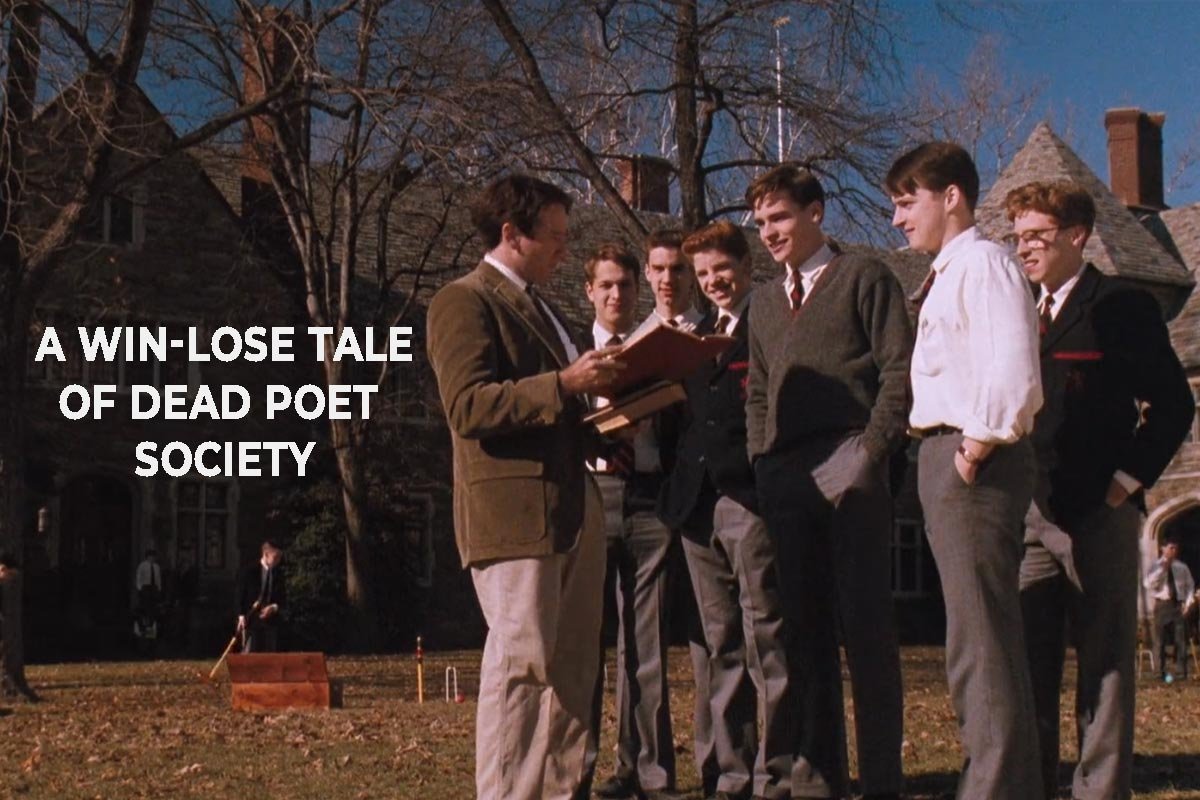“Show me the heart unfettered by foolish dreams and I’ll show you a happy man.”
Peter Weir’s 1989 film Dead Poet Society teaches the new generation to think out of the box. The unconventional English teacher enlightens his students through his unconventional teaching methods and stirs the mindset of the upcoming society. He talks of “Carpe Diem” i.e., seize the day, and encourage the students to find their way of striding. The film shows the naivety of adolescence and the complexity of choices that we all might have faced in that phase of our lives.
Dead Poet Society is based on a novel by the same name written by Nancy H. Kleinbaum in 1988 and received great appreciation from the readers. It mirrors society’s parents’ idea of the right education and the constant conflict between following our passion and choosing a well-earning career. In this Film review article, we will revisit the win-lose tale of the Dead Poet Society.
Seize The Day
“‘Gather ye rosebuds while ye may, the Latin term for that sentiment is ‘Carpe Diem.’”
The film begins in an assembly hall where the entire school has gathered before the commencement of a new semester. Mr. Nolan, the principal asks “What are the four pillars?” All the students respond in unison – Tradition, Honour, Discipline, Excellence. He then introduces Mr. John Keating, the new English teacher. After the ceremony, when the parents have left, we see a group of boys in Neil’s room, casually smoking a cigarette. One of the boys mimics their principal and says, “Gentlemen, what are the four pillars?” The four boys respond in unison once again, “Travesty, Horror, Decadence, Excrement.” They call their school, Welton Academy, Hell-ton.
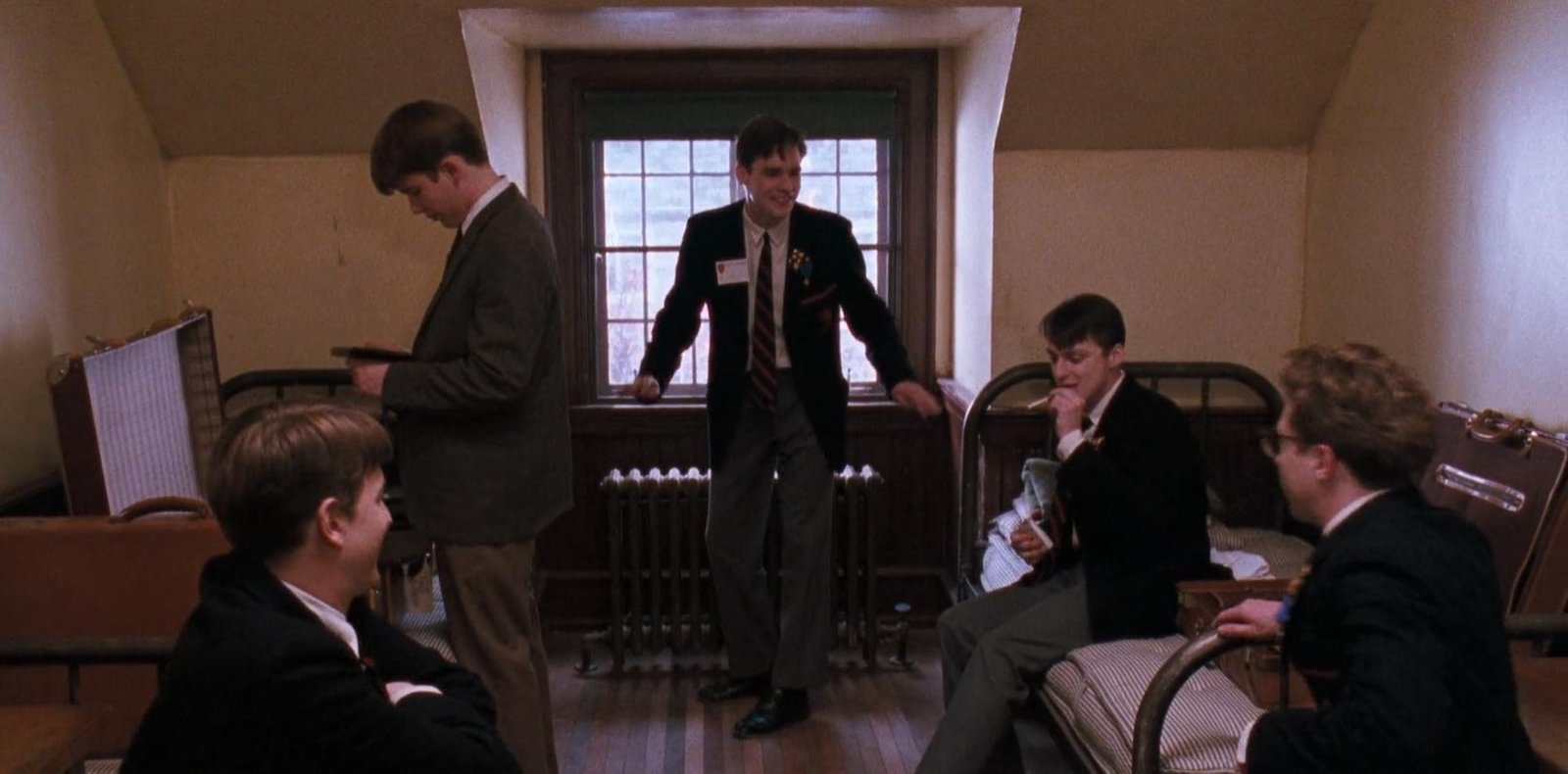
Just then Neil’s father walks in and says that he thinks Neil is taking too many extracurricular activities and that Neil should drop school annually. When Neil says he can’t because he is the chief editor, his father takes it as a public dispute and orders him to do whatever he wants after he has done his medical. Neil is disappointed but being used to it, he agrees.
In the following sequence, we see the teaching methods of the school – the mugging up classes, the homework due the following day and the punishments they would invite if they failed to do so. Then comes the new English teacher, Mr Keating, who whistles across the classroom as he walks out and then beckons the students to follow. This was the first time that the students went outside their classroom to learn a particular subject.
Mr. Keating shows the students all the various ways of learning. He adopted unorthodox methods of teaching which the students and he enjoyed. They learn about a club called Dead Poet Society, of which Keating was a part, and decide to form their club. From thereon, the students begin to push the boundaries of conformity and discover where their likings lay.
However, a school, which has strict rules and is proud of what it is, would never allow a teacher to manipulate the students into doing something that doesn’t have a promising future or perhaps, that reduces the number of intellectuals graduating from the school.
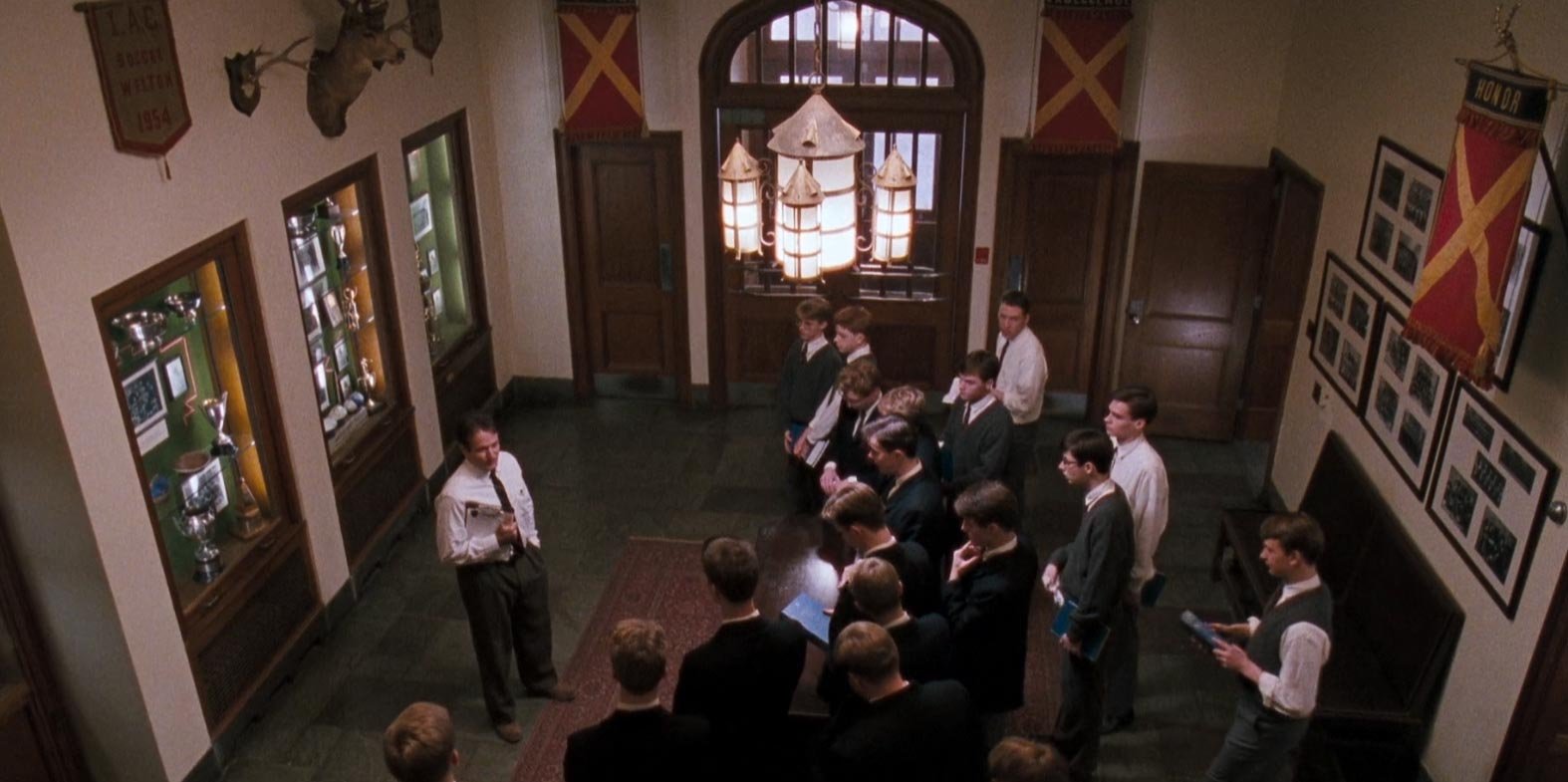
The Barbaric Yawp
“I sound my barbaric Yawp over the rooftops of the world.”
When you are among the seniors in your school but just an inexperienced student for the rest of the world, where do you exactly stand? The stage of revolution is always vague, complex and filled with aggression and recklessness to the one going through it. As for students, more so, since they are still naive. The joy of discovering themselves is overshadowed by the fear of acceptance. They can’t wait to unravel themselves but the thought of what others might think keeps pulling them back.
Like Todd Anderson, the shy and nervous student comes to the class without doing his homework, not because he couldn’t write poems, but because he was too scared to narrate it. Keating encourages him, almost forcing him to give a demonstration of a barbaric Yawp – a loud cry. Todd mumbles initially, then his voice gets louder and then, all of a sudden comes the barbaric yawp. Eventually, he narrates an impromptu poem. Keating kneels as an obedient audience and a proud teacher. Todd is awed at his skills, while the rest of the class is just speechless.
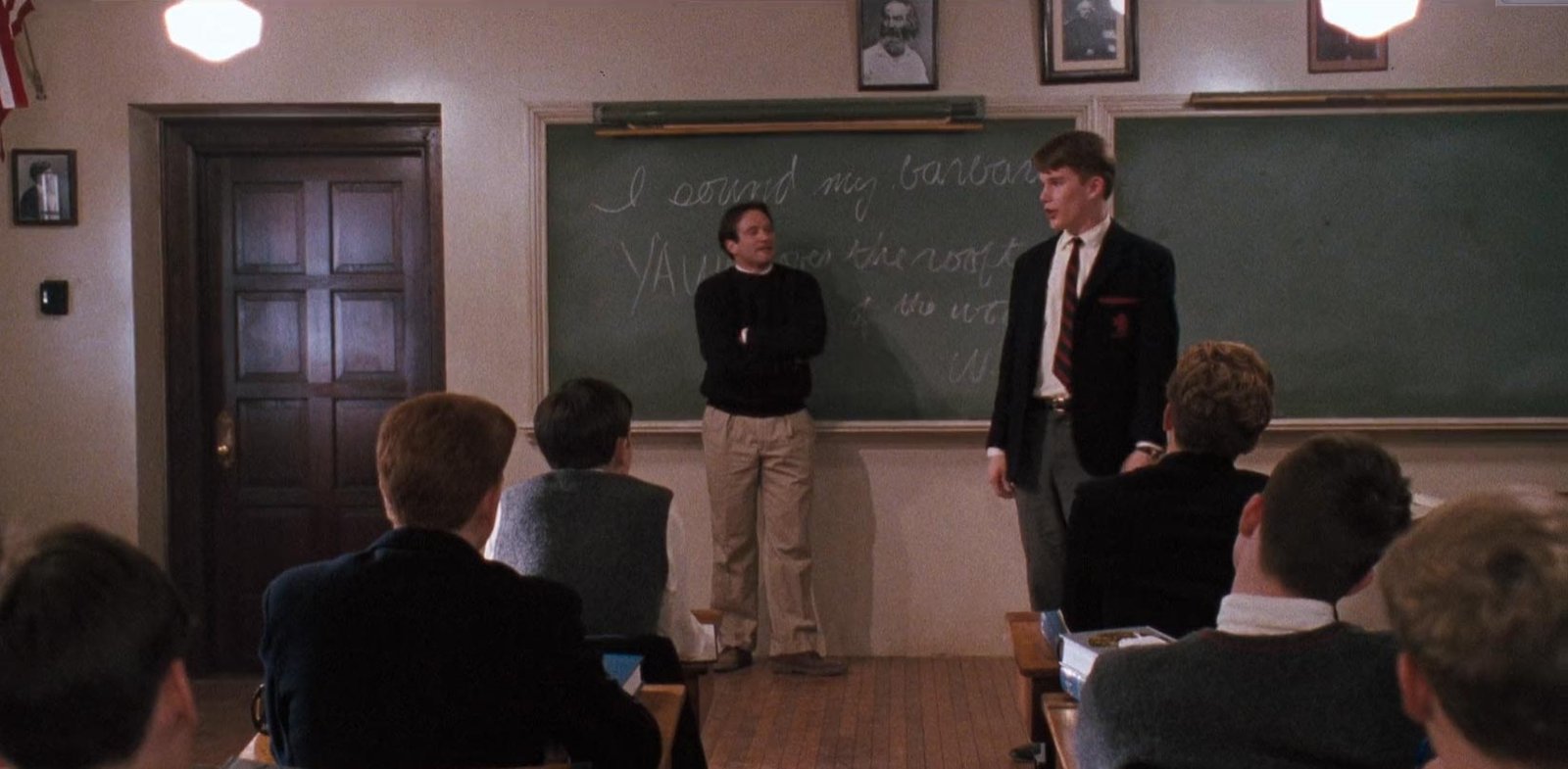
“For the first time in my whole life, I know what I wanna do! And for the first time, I’m gonna do it! Whether my father wants me to or not! Carpe diem.”
Neil’s going against his father’s orders to quit acting and writing a letter to the principal without his father’s knowledge, Knox reads out the poem to Chris and later takes her to the play, Dalton’s writing an article, then later takes the blame on him and not telling any names despite all the beating, and Todd’s standing on the desk and calling out ‘O Captain My Captain’ in respect for Keating – all exemplify the barbaric yawp. Students who were until now bound by strict rules are now fearless to be themselves.
Dare to Strike-Out
“Just when you think you know something you have to look at it in another way.”
One of the reckless students, Hopkins, brings one line to the class, calls it his poem and then winks at his friends as if mocking the assignment and the others giggle. Keating, however, accepts his poem as well. He tells the student that one of the most beautiful poems is about simple things like a cat or a flower or rain. In an institution where repercussions of incomplete homework invite a stringent punishment, Keating accepts and reminds them to be anything but ordinary.
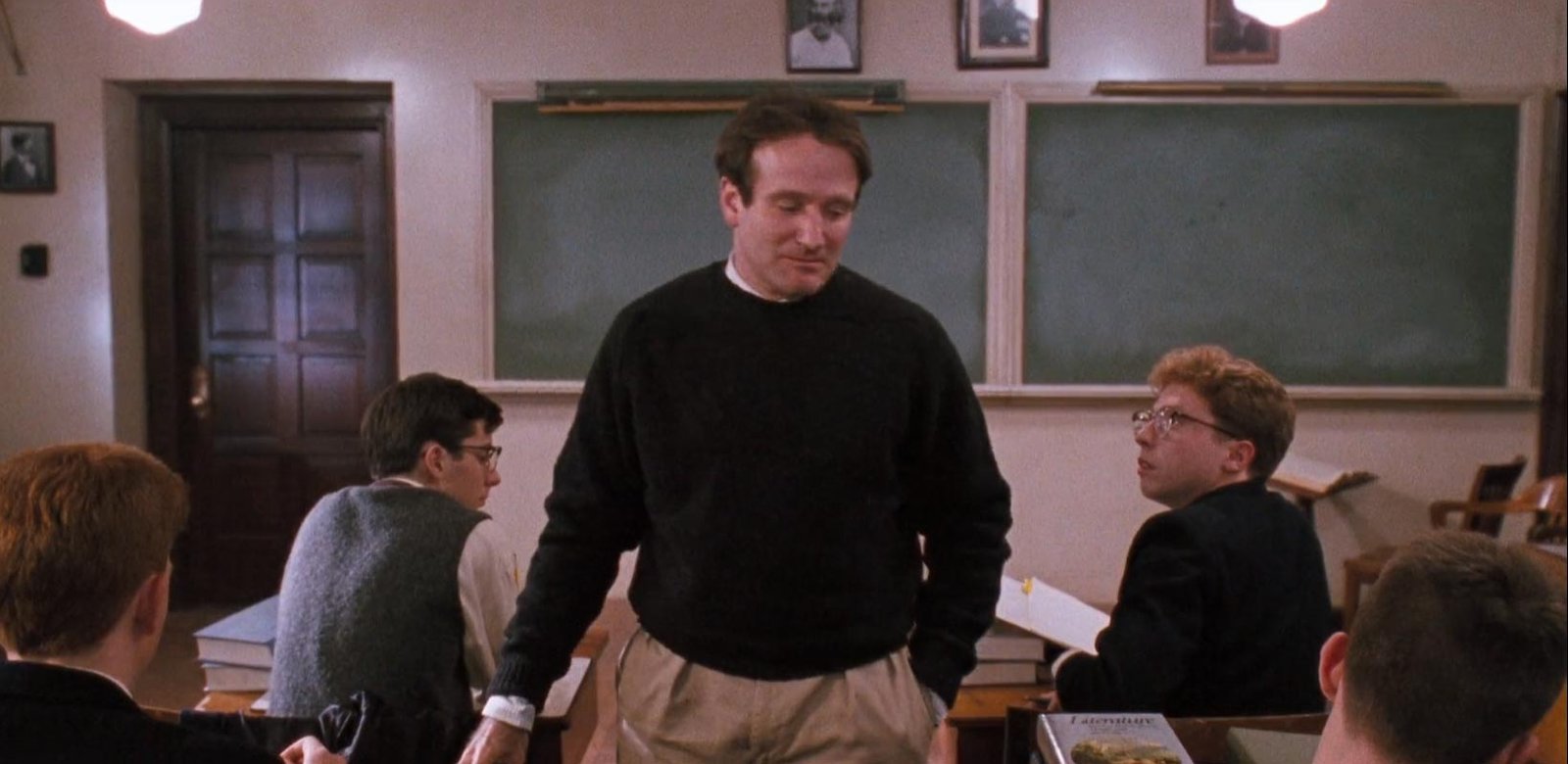
When Dalton pulls the act of a telephone call in the assembly hall, thinking himself to be daring as Nuwanda, Keating explains gently how sucking all the marrow out of life doesn’t mean choking on the bone – just a perspective differentiating daring and stupid. He makes the students stand on the teacher’s desk to illustrate a change of perspective. He takes them out and plays with them, and they all sit in a group when he teaches.
Dead Poet Society tells us how important change of perspective is. When a larger part of society perceives the same idea, they often like to call it a fact. Hence, pursuing a career in medicine would ensure Neil a prosperous life is a fact. Following his passion hence, is being unreasonably obstinate – something that Neil was beginning to believe himself. But Keating tells us that when we think we know something, we must look at it differently. He tells us that when we read something, we mustn’t consider what the author thinks, but what we think – implying we must have our perspective and not follow what others do or tell.
O Captain My Captain
The poem O Captain My Captain by Walt Whitman, whom Keating called Uncle Walt, is an elegy written in 1865 and is dedicated to the then-American President Abraham Lincoln. Simultaneously, the poem celebrates the victory of the war and expresses sorrow for the death of the President, called the Captain. The poem thus intertwines the two polarizing emotions of joy and grief, victory and loss, success and failure. While the whole country rejoices since they not only won the war but also ended it, the poet is consumed by the loss of his captain. The win-lose theme is rhetorical in the poem just as it is in the film.
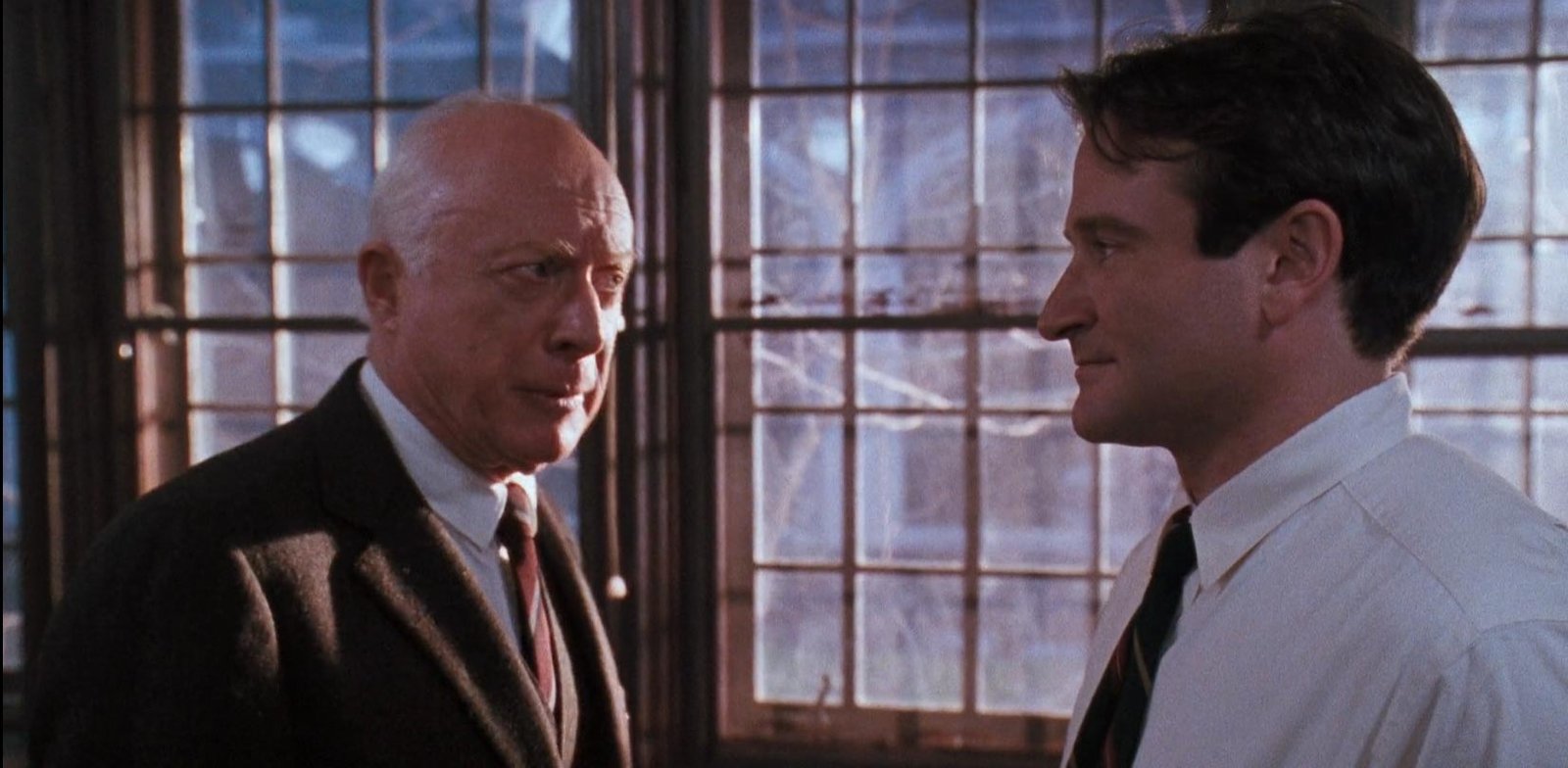
Dead Poet Society explores victory and loss on multiple levels – as teachers, as students and, most importantly, as parents. Keating, who liked to be referred to as ‘O Captain My Captain’ is asked to leave after Neil’s death and it is a loss for the students who lose a captain like him. But did he lose the war he was at – of teaching students to follow their passion? Not. He earned true respect from the students when even the shyest, disobedient, and reckless students stood on their desks calling O Captain My Captain, despite Mr. Nolan’s strict warnings. It tells us that the Captain did his job right.
Two Roads Diverged in Yellow Woods
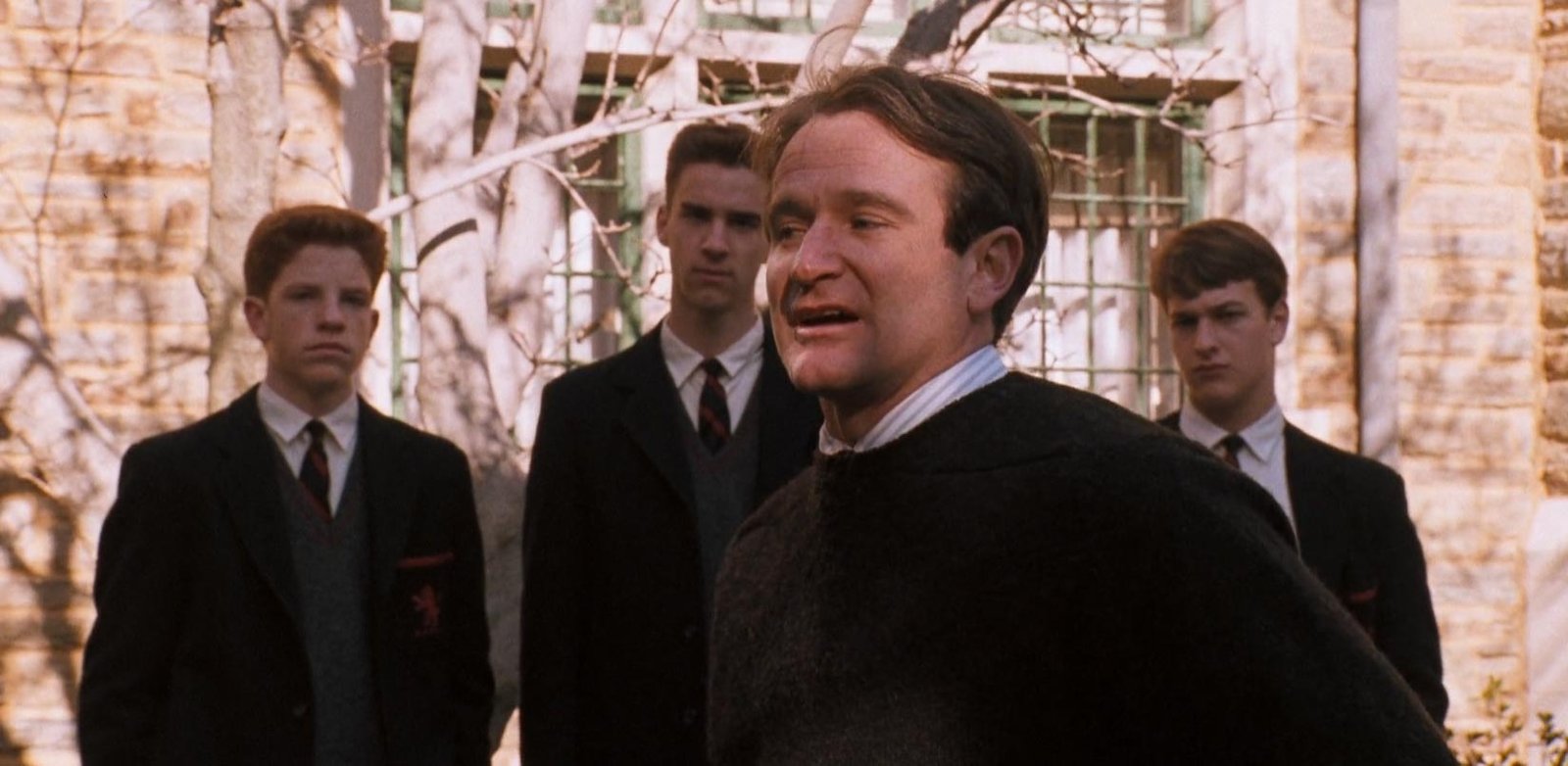
Dead Poet Society has another poetic intrusion that talks about the complexity of choices at a young age. Keating refers to a poem by Robert Frost called Road Not Taken – “Two roads diverged in yellow woods and I took the one less travelled by and that has made all the difference.” He tells the students to make their own choices, to find where their passion lies. The poem is about a choice that the poet had to make – another theme of the film.
Dead Poet Society brings before us the complex choices that the young adults had to make. These choices were to make huge impacts on their lives. Remain loyal to the club like Dalton or own up to everything to save yourself like Richard. The choice of career, the choice of telling the truth, the choice of forming the club, the choice of life and death – all these were to be made under the strict guidelines of the institution and the strict eye of the parents.
The poem tells how the poet chose one road and left the other one for another day, not knowing that path leads onto paths and there’s hardly any chance that that one can come back, undo everything and take the other one just as fair. So did Neil think that he’s allowed to stay in the play at least for four days? To return to his old life, quit theatre and join medical school was like undoing everything and taking the other road anew. That was difficult. He left so alive being Puck that being Neil was worse than death to him. It might have been equally difficult if Neil had followed his father’s orders and waited until he finished his medical school to do what he wanted.
Dangers of Conformity
Dead Poet Society talks of the dangers of conformity, which the authority calls “unorthodox methods.” Ages have passed and yet we see how society forces upon us its idea of right and wrong. Students committing suicide has become an everyday news. Numerous reasons have been listed but the circumstances have remained unchanged. The blame passes on from the teachers to the parents to the friend circle or the teachers.
Was Mr Keating hampering the student’s future? Are all the rules of the school to be broken just like that?
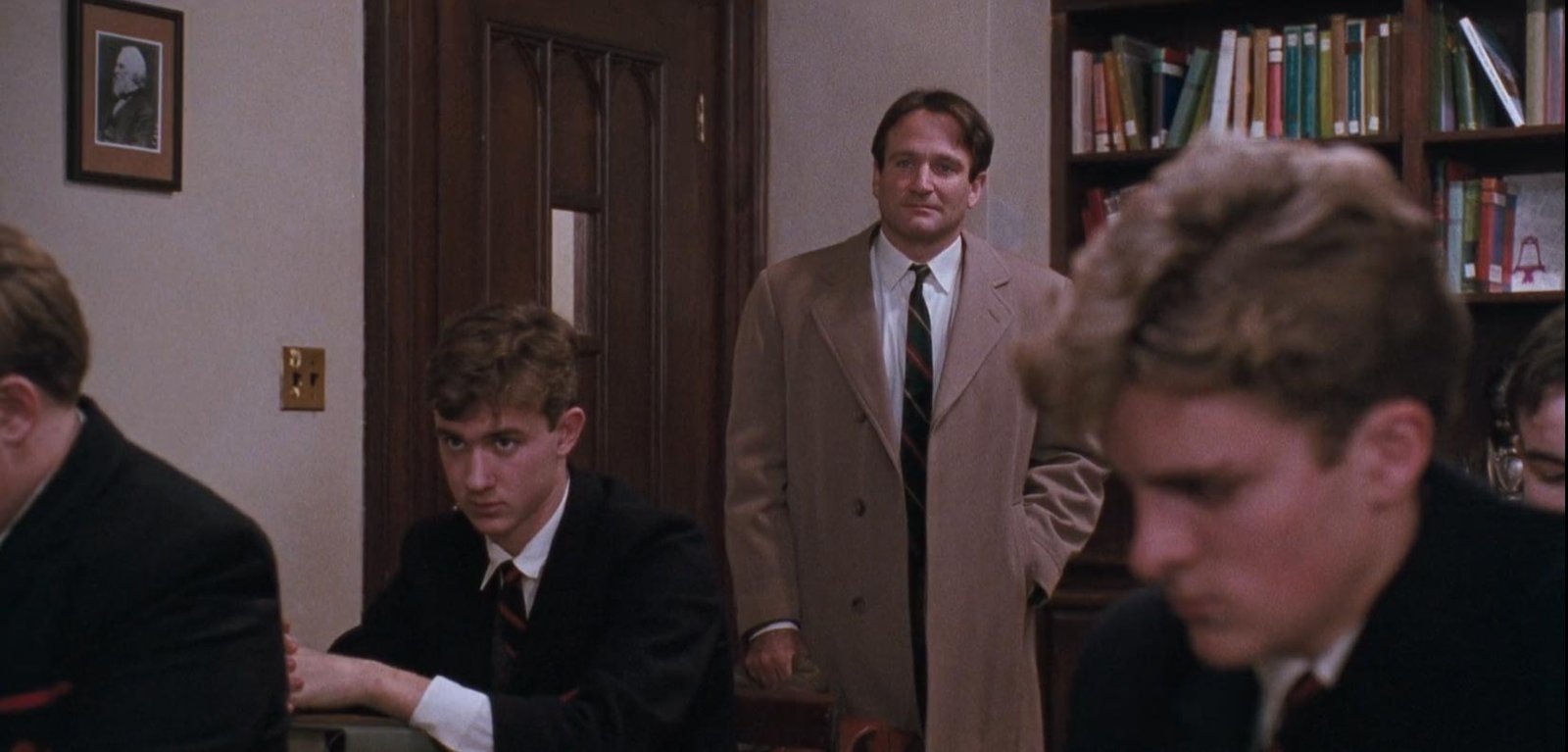
That’s a thought left to the viewers, allowing them to have their perspectives. In the end, what is won and what is lost is also left to the viewers. Dead Poet Society does not criticize the education system or the parents’ concerns regarding their children’s future. This movie rather mirrors it. It does not present the students in a bad light when they let Keating be the scapegoat. It only shows what a schoolboy, pressured by parents, authorities, their future and peers is capable of doing. Dead Poet Society is not about Literature, it is about choosing one’s vision, no matter how silly it might look – told through Literature. Dead Poet Society is about gathering rosebuds while we can and eventually finding our stride.
“To put to rout all that was not life; and not, when I had come to die, discover that I had not lived.”

